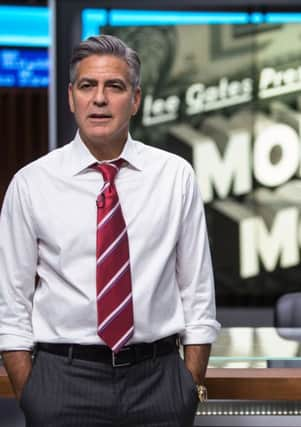Review: Money Monster (15)


The dynamic is given added weight by the casting of George Clooney and Julia Roberts. He is the brash, obnoxious host of Money Monster, a TV show that urges everyday Americans to be bold with their hard-earned bucks. She is his producer.
Theirs is a 24-carat pairing and the acting is effortless. But it’s 25-year-old Derby lad Jack O’Connell who steals the show as the disgruntled investor who storms the studio waving a gun. Suddenly the TV show has become a hostage scenario.
Advertisement
Hide AdAdvertisement
Hide AdA relative of The Big Short but lacking that film’s chutzpah and humour, Money Monster instead focuses on ordinary folk with big ambitions but little financial nous.
As Kyle (O’Connell) begins to unravel – he blames Lee Gates (Clooney) for his perilous situation, having lost his shirt on a bad investment – so we get an inkling of the rage bubbling beneath the surface of modern blue-collar America.
Thus it’s the bankers, the financiers, the haves that are the bad guys. The have-nots (as personified by Kyle) are the losers. Foster, Clooney, Roberts and O’Connell form a tight ensemble that elevates Money Monster into an occasionally plausible thriller even as it simultaneously presents storytelling clichés and embraces them.
But it’s claustrophobic and tense and worryingly prescient. Think Howard Beale in Network and Sonny in Dog Day Afternoon and the film’s sense of playing out drama live on air finds its cinematic roots and influences. There’s a desperation to Money Monster that is pervasive. Like TV evangelists we should be wary of investing our celebrity experts with too much faith. Kyle finds that out too late.
By Tony Earnshaw